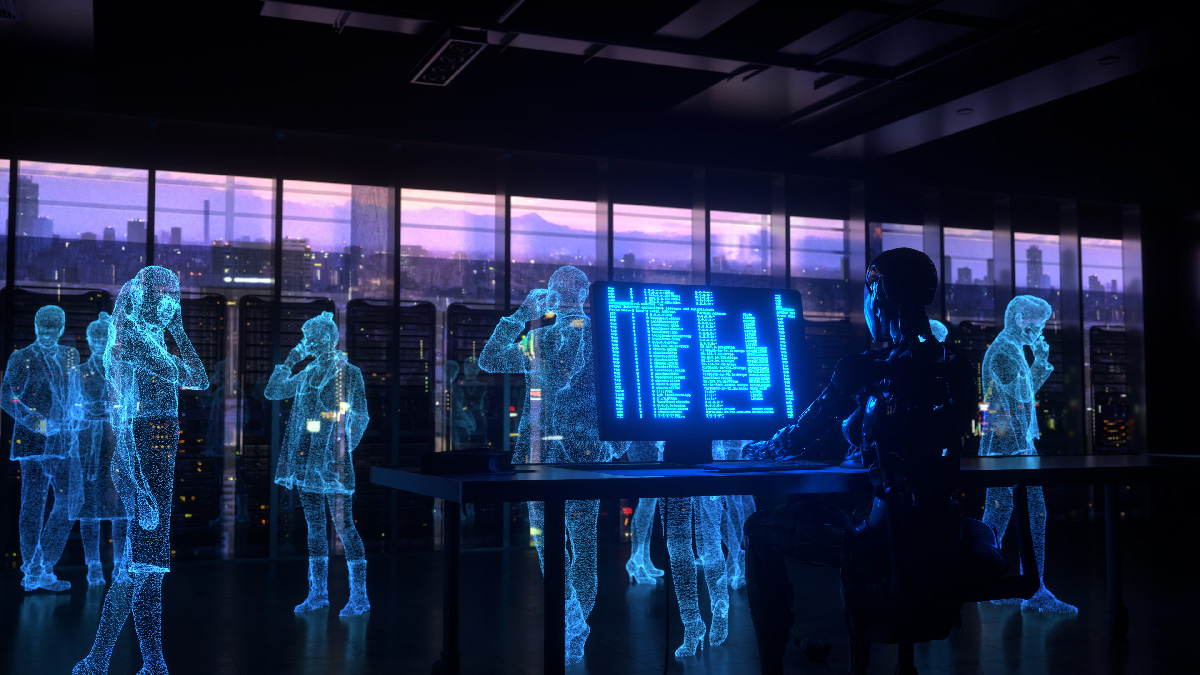As we look toward the future, two transformative technologies – Robotic Process Automation (RPA) and Artificial Intelligence (AI) – continue to revolutionize industries across the globe.
With organizations striving to enhance operational efficiency, reduce costs, and improve customer experiences, RPA and AI have become central to achieving these goals. By 2025, these technologies are expected to evolve dramatically, with their integration into businesses’ workflows being even more seamless and impactful.
In this article, we explore the key trends in RPA and AI automation, drawing on insights from market research and industry studies.
1. Agentic AI: the Autonomous Decision-Maker
Agentic AI is set to redefine the automation landscape by empowering systems with autonomous decision-making capabilities. Unlike traditional AI, which requires human intervention for critical decisions, Agentic AI operates independently, assessing situations, learning dynamically, and making decisions without constant oversight.
According to Gartner, Agentic AI ranks as the top strategic technology trend for 2025. By 2028, at least 15% of day-to-day work decisions will be made autonomously through Agentic AI, up from 0% in 2024 (Gartner 2025). This leap signifies a profound shift in how businesses approach decision-making processes, with Agentic AI enabling unparalleled efficiency and adaptability.
Applications of Agentic AI will span various sectors, from autonomous supply chain management to real-time fraud detection and personalized customer interactions. By leveraging this capability, organizations can achieve faster response times, reduced operational errors, and more innovative solutions to complex problems. As a cornerstone of intelligent automation, Agentic AI is poised to drive significant advancements across industries.
2. Increased RPA Adoption and AI Integration
In 2025, RPA will be an even more integral part of enterprise operations, helping companies automate repetitive and rule-based tasks such as data entry, document management, and invoice processing. The real game-changer in this will be the deeper integration of AI into RPA, making RPA systems smarter and capable of handling more complex tasks.
AI, particularly through machine learning and natural language processing (NLP), will enable RPA tools to move beyond simple rule-based automation. This shift will allow bots to process unstructured data, analyze patterns, and make decisions based on real-time information, thereby enhancing operational agility. As AI continues to evolve, its ability to collaborate with RPA platforms will push organizations toward a future where intelligent automation drives superior decision-making, efficiency, and innovation.
From automating routine, rule-based tasks to addressing complex and uncertain scenarios, the evolving synergy between RPA and agentic AI is poised to redefine business operations. RPA will no longer be confined to simple back-office functions. Instead, it will play a pivotal role in intelligent decision-making and adaptive process management, empowering organizations to remain competitive in an ever-changing market.
3. AI in Customer Experience Automation
AI will increasingly be applied to enhance customer experience (CX) automation in the coming years. This year, we can expect more sophisticated AI-driven customer service solutions, including chatbots, voice assistants, and virtual agents, to offer personalized and efficient interactions across all touchpoints. AI technologies like NLP and machine learning will enable these systems to understand customer sentiment, make proactive recommendations, and solve complex problems without human intervention.
According to Gartner, Generative AI, digital customer service, and conversational user interfaces will transform customer service and support by 2028.
In the retail, telecommunications, and banking industries, AI-powered customer service solutions will be crucial in meeting growing customer expectations for immediate and personalized responses.
4. AI-Driven Workforce Transformation
As RPA and AI reshape business operations, organizations will need to rethink their workforce strategies. During 2025, AI and automation will enable human workers to focus on higher-value tasks by automating repetitive or time-consuming work. However, this will also require businesses to invest in retraining and upskilling employees, equipping them with the skills necessary to work alongside intelligent automation tools.
According to Gartner, organizations deploying AI to eliminate middle management will see gains in productivity alongside reduced labor costs: “AI will automate scheduling, reporting, and performance monitoring, enabling remaining managers to focus on strategic, value-added activities.” Workers will transition from routine tasks to more strategic, creative, and complex responsibilities, making the human workforce more productive and value-driven.
5. Ethical Considerations and Responsible AI
As AI and RPA technologies become more deeply embedded in business processes, ethical concerns regarding data privacy, bias, and transparency will take center stage. In response, organizations will prioritize responsible AI practices, ensuring that AI systems are designed and deployed ethically.
During 2025, it is expected that companies will adopt regulations and frameworks to govern the responsible use of AI, including the creation of AI ethics boards, to oversee the design, deployment, and monitoring of automated systems. The World Economic Forum has emphasized the need for businesses to ensure that AI applications are fair, transparent, and accountable to mitigate risks such as algorithmic bias and data misuse (World Economic Forum, 2025).
Conclusion
AI and RPA will continue to drive transformative change in the business world. With deeper integration, enhanced capabilities, and a broader scope of application, these technologies will reshape industries and redefine the way companies operate. Businesses that successfully harness the power of RPA and AI will enjoy significant competitive advantages, including improved efficiency, better customer experiences, and a more agile workforce.
As we embrace these innovations, it is crucial to balance technological progress with responsible, ethical practices. By doing so, organizations can pave the way for a future where intelligent automation accelerates growth, innovation, and sustainable success.
Fill out the form below to learn more about these and other technologies and start your organization’s digital transformation journey.






